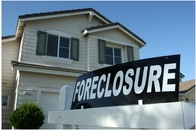Advertisement
FHA Seeks to Stabilize the Housing Market Through Anti-Flipping Deadline Extension

In an effort to continue stabilizing home values and improve conditions in communities experiencing high foreclosure activity, Federal Housing Administration (FHA) Commissioner David H. Stevens today has extended FHA’s temporary waiver of the agency’s ‘anti-flipping rule.’ The extension is intended to accelerate the resale of foreclosed upon homes in neighborhoods struggling to overcome possible property abandonment and blight.
With certain exceptions, FHA regulations prohibit insuring a mortgage on a home owned by the seller for less than 90 days. Early last year, FHA temporarily waived this regulation through Jan. 31, 2011. FHA today posted a notice extending this waiver through the remainder of 2011. This action will permit buyers to continue to use FHA-insured financing to purchase U.S. Department of Housing & Urban Development (HUD)-owned properties, bank-owned properties, or properties resold through private sales. It will allow homes to resell as quickly as possible, helping to stabilize real estate prices and to revitalize neighborhoods and communities.
“As I noted when we first announced this policy change early last year, because of the tightened credit market, FHA-insured mortgage financing is often the only means of financing available to potential homebuyers,” said Stevens. “Today, I can report that this policy change has been effective. Since the original waiver went into effect on last February, FHA has insured more than 21,000 mortgages worth over $3.6 billion on properties resold within 90 days of acquisition.”
FHA research finds that in today’s market, acquiring, rehabilitating and reselling these properties to prospective homeowners often takes less than 90 days. Prohibiting the use of FHA mortgage insurance for a subsequent resale within 90 days of acquisition adversely impacts the willingness of sellers to allow contracts from potential FHA buyers because they must consider holding costs and the risk of vandalism associated with allowing a property to sit vacant over a 90-day period of time.
“Because of past restrictions, FHA borrowers have often been shut out from buying affordable properties," said Stevens. "This action enables our borrowers, especially first-time buyers, to take advantage of this opportunity and buy a home that has recently been rehabilitated. It will also help to move more foreclosed properties off the market and reduce the number of vacant homes in neighborhoods throughout this country.”
The extension is effective through Dec. 31, 2011, unless otherwise extended or withdrawn by FHA. All other terms of the waiver will remain the same, and HUD continues to invite public comment on it. The waiver contains strict conditions and guidelines to assure that predatory practices are not allowed.
To protect FHA borrowers against predatory practices of “flipping” where properties are quickly resold at inflated prices to unsuspecting borrowers, this waiver continues to be limited to those sales meeting the following general conditions:
►All transactions must be arms-length, with no identity of interest between the buyer and seller or other parties participating in the sales transaction.
►In cases in which the sales price of the property is 20 percent or more above the seller’s acquisition cost, the waiver will only apply if the lender meets specific conditions.
►The waiver is limited to forward mortgages, and does not apply to the Home Equity Conversion Mortgage (HECM) for purchase program.
Click here to read FHA’s anti-flipping waiver.
For more information, visit www.hud.gov.
About the author





